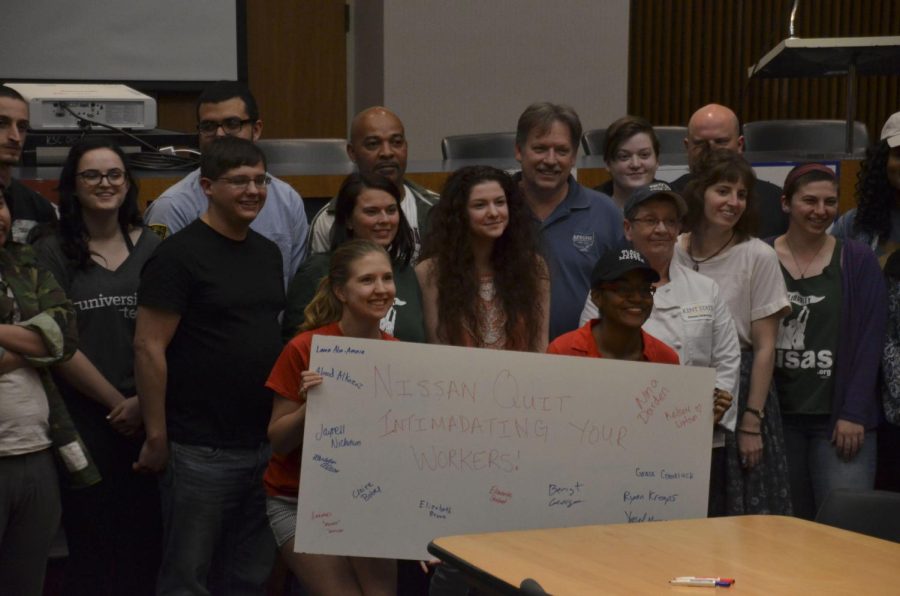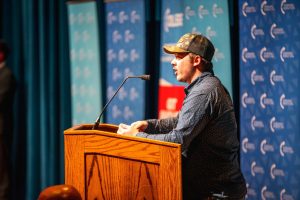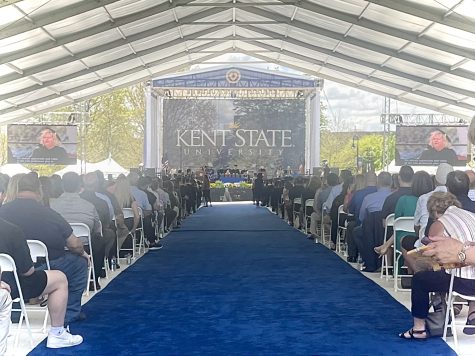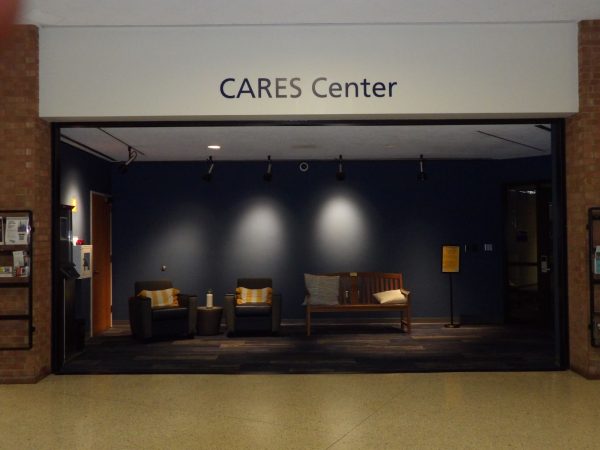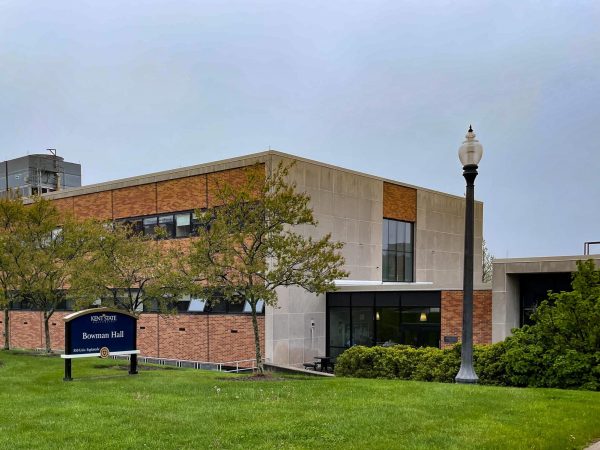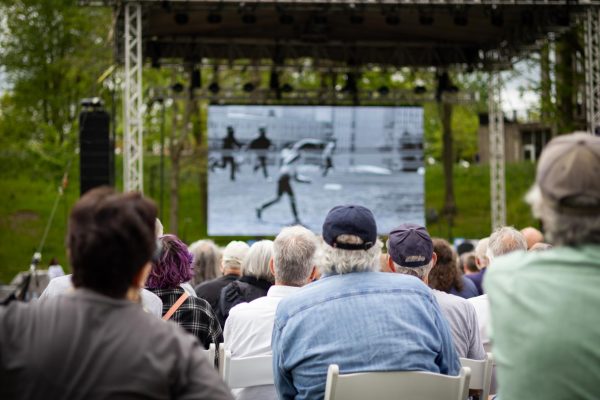0425_aa_USAS_tl
United Students Against Sweatshops held their panel discussion with Lee Ruffin, center back, in support of workers for Nissan on April 24, 2017.
April 25, 2017
Suggested hed: USAS holds discussion on unions
Kent State’s (CQ) United Students Against Sweatshops (USAS) hosted an event in the Governance Chambers for solidarity with non-unionized workers and their issues with the Nissan Corporation in Mississippi.
Approximately 30 students attended to hear Lee Ruffin, an advocate for unionization of all Nissan plants, speak on the need for workers to unionize to secure their rights.
“We get no benefits,” he said. “We have no support when something happens. It’s ridiculous, really ridiculous.”
Ruffin works for a Nissan Plant in Canton, Mississippi, which he said is one of the highest paying businesses in the state with the the lowest income per capita. The plant is one of three non-unionized Nissan plants out of the 45 around the world — two in Mississippi and one in Tennessee.
“I’m getting $26.02 per hour, and I hear some of my colleagues saying it’s the best job,” Ruffin said. “It’s not the best. It’s just the highest paying and has no respect for its workers.”
About a year ago, Ruffin said he injured his back while installing seats into the cars. He said he applied seven times to be moved to another station after experiencing the dangers of the job on his body and the failures of the plant to create a safe environment. Although he has worked there for over fifteen years, Ruffin said, he has seen others employees who have worked there for less time than him get moved instead.
“They threaten to move to Mexico if we unionize,” Ruffin said. “Co-workers and [I] have traveled and seen Nissan factories in other countries. Even though they’re unionized in those places it’s all the same thing. It’s Nissan. It really isn’t what you know, it’s who you know.”
The plant uses scare tactics and bullying to keep the workers in order, Ruffin said, and the plant shows management videos that discredit unions and blames them for the failure of General Motors, Chrysler and Ford, Ruffin says.
“It’s not true,” Ruffin said. “It wasn’t the unions that failed us, it was all because of poor management.”
The leaders of USAS originally heard this story at a USAS Conference in Columbus in February. It fit in with what they USAS has showcased in the past.
“It was powerful when it was shared with our USAS collaborator Joel (Solow),” said political science major Claire Bobel. “We wanted to share it with Kent State.”
Two adjunct professors also participated in the discussion, as well as a student worker and three service workers. Adjunct professors have advocated for representation.
“I have seen follow colleagues on food stamps,” said Susan Moore, an adjunct professor in the English department. “There is no job security, no benefits…after working here since 1980, we just want a seat at the table.”
Paul Meyer, adjunct professor for Justice Studies and the Sociology department shared the need for benefits among other adjuncts.
“My job is being a practicing attorney, so I don’t depend on Kent State for income,” Meyer said. “But I see adjuncts working at Kent, Akron and Tri C and still only making $20,000 a year with no benefits.”
George Lemons addressed Aramark’s upcoming renovation of the dining facilities come the 2019 fall semester. The large payout to the business and the new buildings around campus were discussed, although his position as a food service worker is the lowest paid in the state.
“The university likes to act like they got no money, but they’re good at landscaping,” Lemons said. “The new guys are planning on bringing in a new team, so I don’t know what’s going to happen. I’m outspoken, but I want more people to do more than just stand there and shout.”
Ruffin hopes the fight against his occupation resonates wherever he visits. Next, he plans to visit Macon, Georgia to meet with unions.
“This is for the next generation, you guys,” Ruffin said. “Right now I just need to know my family will be taken care of.”


